To find pleasure in something, first, one has to put pleasure in that thing, else he/ she cannot extract it. Language is not inherent inside us, it is taught through social contact. Similar is the case with Diwali, Christmas, traveling around, showing a middle finger (Video 275), gemstones, (or any other event/ situation/ festival/ function/ art/ sport, …). These things are not inherently happy or sad. One is taught through social conditioning that there is a pleasure/ happiness or misery in it, so that we can extract that feeling of happiness or misery from it at some point later. Based on region, religion, ethnicity, place, timeline one belongs to, we have different levels of happiness/ agony for different events/ functions/ festivals/ rituals/ everyday conduct (based on timeline and place, we like different arts, sports, music, food, ….).
(Video 303) – Do the value exist in things or do we put it in them …? (Video 224), (Video 204).
( That doesn’t necessarily mean people dislike one another )
(So called) aura (importance/ intensity) associated with a person, event, situation, places are nothing but our training to feel so (Video 183a), (Video 183b) (the way we feel when we are around a religious place or pyramids, Taj Mahal, Five star hotel suite, cruise ship or any other material things (interior of a house, gold, diamond, …). Would a person from Sentinelese tribe (a least connected tribe from North Sentinel island) feel the same about these things. The question that bothers me is ‘are we trying to extract something from nothing …?’.
A nice cricket shot doesn’t seem that elegant or ‘WOW’ to others as an Indian does (Video 318). Football is not as famous in India as it is in Europe & South America. We learn these things mostly through passive encouragement – by observing others (generally the ones we are dependent on or admire) without any objective filter. A person from the Sentinelese Tribe may not feel any excitement towards any sports at all as he is not conditioned with them. We put feelings/ values in gold through social conditioning and then get exploited for it at the later part (Video 313). (Video 23). The only reason for us to buy or desire gold is because everyone does the same. When other people will lose the desire for it, we would be forced to do the same (Video 168a).

Values drop when people lose desire for those things.

(Video 278 – Do you want to be fat or slim …?)
Why are we being a puppet to something unreal & illogical on the outside …? Is there freedom in other’s illusions …? Is this how we desire or follow things, traditions, trends, social conventions … (not knowing what exactly they are) …? (Video 236).
We are only interested in things that are secretly desired by others (material and non-material, etiquettes, a car or house, a certain way of doing something, ritual, religion, God, tradition, celebrations, a dress we want to buy, certain knowledge or secret information, a certain technical skill set or athletic skills, owning a business (Video 227), … . And no matter how admirable something is in the society, but if things presents themselves as a sign of weakness or undesirability, desire for those things falls apart within seconds (Video 168a), (Video 168b), (Video 216), (Is the sexual intercourse in itself pleasurable ..? (Video 206)). Things that do have any intrinsic value, don’t last longer (Video 204).
[ Sexual intercourse that is no more than the friction of a membrane and a spurt of mucus ejected. How good these perceptions are at getting to the heart of the real thing and penetrating through it, so you see it for what it is.
– From ‘MEDITATIONS’ by Marcus Aurelius (A Roman emperor and philosopher 121AD-180AD) ]
Ex : (Video : YouTube Link) [ A real life story in brief : A father throws his teenage son out of the house for making attempts to have a TV related career. Son goes through hardship, works as a daily wage laborer in a factory and then as janitor. After two years of struggle, he finally becomes successful. When father and son encounter one another in a program, the father hugs him.
What bothers me is why would a father hug his son for the same reason for which he threw him out of the house …? What changed …? He could have made attempts to amend relations with his son a year before, why now …? Don’t his actions make him a hypocrite …? If he was right earlier, then why isn’t he mad at his son anymore …? Or maybe he was wrong all along, he just didn’t want to accept it (Video 196) or maybe not. (The outcome may have come in favor of the son statistically, that does not necessarily make him right). ]


( What changed …? Why now …? Why not talk to the son after 5 or 10 yrs …? What psychological forces were into play …? (Video 139), (Video 263) ).
Is the decision of ‘whether to like someone / something or not’ made by us or made through us …?
— Sentiments are expressed through us, not by us. —
[ When people find something else important than ourselves, we become afraid of losing control over them (Video 111), (Video 276 – Afraid of losing attention and control).
OR
When someone becomes powerful, we become afraid of losing them (we become afraid that they will stop running behind us like a puppy). And our emotional state (especially hatred) may take a complete U-turn and turn into affection to regain that control (Video 265), (Video 240), (Video 99), (Video 276) (i.e. “Look, I love you. I will be there for you. Just don’t become independent of me. Without you being under my control, I don’t know where else to derive my value from.” (Video 139)).
Is the argument limited to father-son relations only …? (take a look at image below)
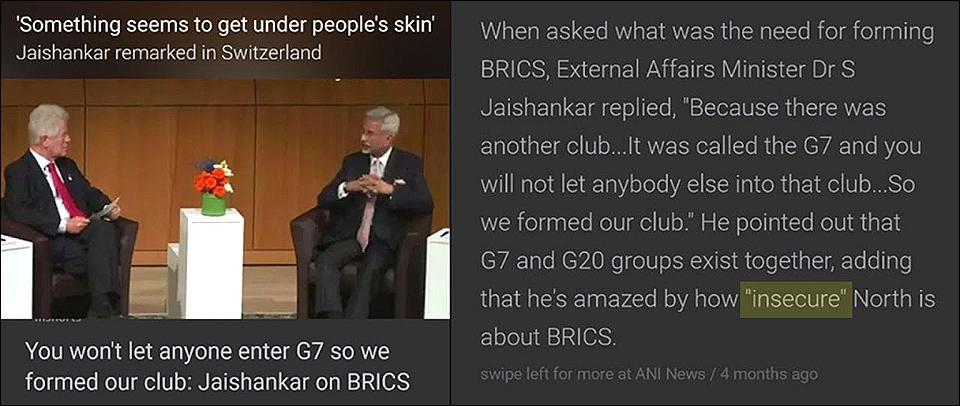
(Again : weakness is afraid of others becoming independent, not strength (Video 246). Weakness is afraid that ‘if it loses its upper hand, it will lose its value in others mind as well and hence others will begin to forget about it.’)
(Micheal Faraday (chemist & Physicist) – short biography) (1791 – 1867) (must read *important)- “One would think, as a teacher Davy was happy at his pupil’s achievement. But in reality he was jealous. People started telling Davy that of all his discoveries, the best was Faraday himself; this made him even more jealous.” OR (Video 276b – being violent when feel threatened), (Video 277). OR

( (Video 220) – Was she envious of the actual promotion or was she afraid of losing the attention of her colleague and others around her …? (Video 304). Would she have felt jealous, had her colleague chosen to become someone like Mother Teresa …? Why not …? ) ]
OR
A physically beautiful woman might be resented by average looking women in a very subtle & unnoticeable way. But it is not beauty itself that they resent, it is the attention seeking ability of beauty that they don’t like (Video 257), (Video 324) (equally applicable for IQ, music, material/non-material things, athletic skill, humor, ….). If people had failed to notice the beauty (Video 184), the subtle resentment towards beauty wouldn’t have come into existence in the first place OR the word ‘Beauty/Nice’ (mostly referred while describing an interior of a house, landscaping, a female body or a muscular male body, design of clothes, athletic skills (Video 172),…) would not have taken birth in the first place.
Jealousy = someone else taking control of others mind (i.e. I am being replaced by someone else in others mind) which may affect my food and shelter (or survival) in the times to come. Jealousy is an indicator of absence of independence (physical and psychological).
( Take a pause …. )
Hypothetically, would a father throw a son, who is already successful, out of the house …? (try it). Probably not. Because, back of the mind, he already knows that it wouldn’t bother him at all (which was the whole point (Video 330). Because we know it will force them to think about us (i.e. our existence & superiority will be established in their mind). We are less interested in actual actions and more in exchange of sensations (Video 260)). ((Video 240) – Maybe the father stopped his son because he knew that the Defence Academy would provide food, shelter and a job which would make him independent. Would the father have stopped his son if the son had nowhere else to go …?)
A father can’t afford losing control over a powerful son. Rebellious activities of only weak people bother us. Rebelliousness of powerful people doesn’t even get noticed or we don’t treat it as rebelliousness at all (Video 263).
Our interpretations of a person changes based on how much power he/ she possesses and how much we need them (either in present or in future).


( We can only assume that no one dared to question his move )
Also, we know that we can not use powerful people if we choose to be against them (to be precise, we are not interested in actual power or things, but the attention seeking ability of that power. We are not interested in power that doesn’t have the ability to catch attention (i.e. becoming Galileo, Phule, Mother Teresa, …. We call them social reformers, but we reserve the word success for something else)).
We like things that are desired or needed by others (Video 265), (Video 273), (Video 293 – Adult language : discretion required). We want control over things that are desired by people which indirectly helps us get their attention (Video 323). Do the actual things matter …? (Video 168a).

When we lack the personal sense of right and wrong, we passively allow the world (i.e. irrational people) to do it for us.

(Some want to join defense services (Army, Navy, Air Force), mostly because they know people from armed forces are respected in society in general (no offence intended through the argument). They could have chosen to become someone like Socrates, Galileo, Phule … . Why don’t most of them do so …? These things are not easy either. And they didn’t worry about other’s appreciation or respect (Video 204))

(Argument doesn’t imply that being a social reformer is the most right thing to do with life)
[ Attention = To imprint our existence on other’s mind in a desirable way ]
And we don’t like things that are not admired by our surroundings ((Video 168a), (Video 168b), ….). We find it very difficult to fall out of the line.

I always wondered why people spend a lot of money on unnecessary luxuries (except necessary ones), buying precious gemstones at double price, celebrations, traditions while they could be using all those resources to do creative things.. Now I know. We (including myself) may superficially admire religion, God, Gandhi, Buddha, Socrates, …, but our actions take the shape of what we & others secretly consider superior (or something that gives us attention), something that is not reflected on our faces.

[ Example from INFLUENCE THE PSYCHOLOGY OF PERSUASION by Robert Cialdini : Reader’s Report 1.1
A man who owns a jewelry store tells a story. His friend wanted a special birthday present for his fiancée. So, the jeweler picked out a necklace that would have sold in his store for $500 but that he was willing to let his friend have for $250. Friend became enthusiastic. But when the jeweler quoted the $250 price, the man’s face fell and he began backing away from the deal because he wanted something “really nice” for his intended bride.
The next day, the jeweler called his friend and asked him to come back to the store so that he could show him another necklace. This time, he introduced the new piece at its regular $500 price. But before any money was exchanged, the jeweler told him that, as a wedding gift, he would drop the price to $250. Now, rather than finding the $250 sales price offensive, he was overjoyed and grateful to have it. ]
[ When we want to buy something necessary (such as groceries, tools, equipment, business deal, ….), we drive a hard bargain. But when we want to buy something unnecessary, we don’t even look at price tags.
Necessary things = useful & unavoidable things, but not associated with our superiority.
Unnecessary things = useless things ,but we derive our value from them (Video 280), (Video 98). They give us a false sense of freedom, independence, attention and superiority.
But why does jewelry feel good …? Would a stainless steel jewelry with the same design make us feel good …? (pause)… … …. …. …. Why not …? How come a non-living thing makes us feel special (that’s stupid, isn’t it …?) …? Is it because it has some intrinsic value or is it because of others’ admiration of it …? ((Video 339) – Where does the confidence lie …?, in things …?). Is there a difference between owning large breasts and owning a successful son …? (Video 168a).
OR
(Video 278 – Does the confidence lie in being slim/fat or how others look at it …?) ]
Attention that comes with external things, goes away with them.
Necessary things fall under the category of slavery. Unnecessary things present themselves as a sign of luxury, and hence, we unconsciously incline towards them. The day work itself becomes a symbol of freedom, attention and luxury, meaningless desires will fall apart without any effort because we were never interested in actual things anyway.
Also, doing all those things has never made any technical topic easy for us (say Physics, Mathematics, Chemistry, Work or life in general, anxiety, uncertainties, …). Then why would one do these things …? (Video 32a).
(Take a pause …..)
The very foundation of our economy (human desire and it’s irrationality) is unstable, how will the economy ever be stable …? (Video 113b).

We don’t spend money, buy or celebrate things, we extract a sense of freedom/ independence through them. Are our mistakes (including our expenses, our impulses, being mad at someone, …) random …?
Sentiments/impulses are expressed through us, not by us.

(The only reason rich people buy or do things is because the same things are secretly desired by others. Rich people didn’t fall from the sky. They came out of average ones statistically and hence they are not different from one another. Similar is the case with democracy. Political leaders come from the citizens statistically (Video 88). They both are just two sides of the same coin. Most of us don’t really know what we secretly desire. People don’t change when they stumble upon power or when they are provoked by an incident. They just get the opportunity to see who they were all along underneath ((Video 299) – you just set if free). The majority of the people don’t get the chance to find that out. So, they live under the false pretense that they are different from the powerful ones.)
[ In a way, we all are looking for attention. Kids and adults have different ways of seeking attention, but the underlying desire remains the same. The ones who don’t have money, they show off a little bit. The ones who have wealth, they already secretly know that they have superiority and other’s attention. We generally admire the people from the 2nd category, but there is hardly any difference between them. In fact, they are exactly the same. They both used different physical tools to overcome the same feeling. If the 1st ones had the enough resources, they would be doing the same things. ]
It is not surprising why superhero characters such as Superman, Batman, Spiderman, ….. are cherished in society. The important question is “why did these characters come to life in the first place …?”. Unless someone felt really weak, the desire to overcome that weakness wouldn’t have clicked his mind and hence no further imagination would have taken place in that direction. Also, how is wanting to be a Superman different from the desire for a grand celebration, …? Do they not share the same psychological desire (i.e. to not feel weak or to seek attention) …? (Try not doing it). What is the origin of all our celebrations, impulses, desires, dreams, goals, beautification of body or house, …? Why are we continuously striving in these directions …? (When certain human stupidities are accepted socially without any filter (Video 236), we falsely treat them as normal activities). And the world, system, lifestyle and our way of living take the shape of our desires and inferiorities).
An angry individual is one who is striving for superiority by the strenuous application of all his powers. – Alfred Adler
Sudden discharge of emotions have a definite goal and direction. Their purpose is to modify the situation of the individual in whom they occur, to his benefit (Video 139), (Video 235), (Video 111) – Alfred Adler
Most of our positive & negative emotions, actions, words, thoughts have the same goal. They are not random either. Based on age, power and the place one grows up in, physical form of desires keeps changing, but their origin remains the same
Anything (traditions, cultures, a certain way of doing something, attire, desire/ admiration of material and non-material things, …..) that thrives on ‘common experience’ falls apart when it goes away and hence cannot be trusted. If a feeling of certain celebration cannot be felt while being alone, then it never had any intrinsic value (OR if sports, religion, culture, … cannot be performed being alone without any audience, then it never had any intrinsic value. Will a boxing sport exist without an audience …?).
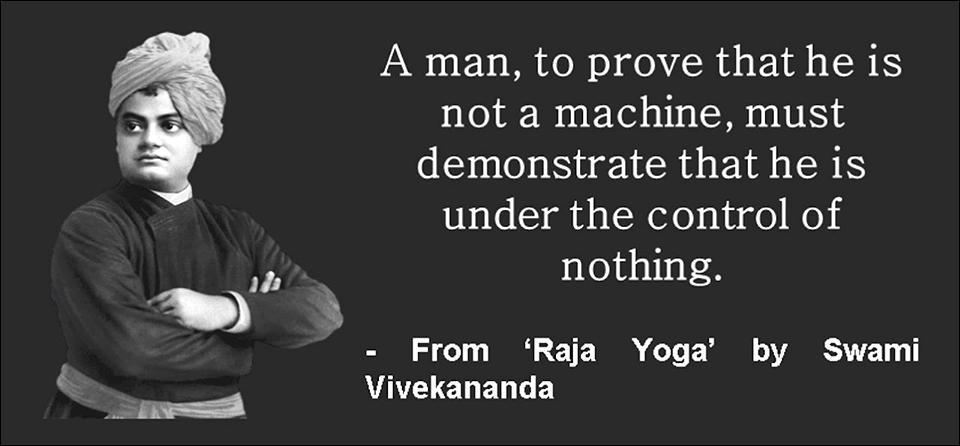
( A human machine is physically useful, but it is still a machine. Its individuality & genuineness can be easily violated. It gives others an unfiltered permission to manipulate itself )
Have you ever wondered ‘why don’t we do charity work by mistake …?’ (that does not necessarily mean ‘charity work’ is the most right thing to do with life. It is just an argument). How sure are you that your urges are random …? Many people are awarded and appreciated for their social service, but we don’t actually want to be like them.

(we can notice that though the above qualities are superficially admired in society, people (including myself) are not actually interested in them (as our actions speak louder than our own words). We don’t have the desire to become someone like Gandhi, Socrates, Galileo, Mother Teresa, …., nor would we encourage our own kids to do so …? but why not …? (note that the argument does not imply that becoming like them is the most right thing to do. We are just trying to follow our actions and see where they lead us). Were they not worth something …? And if we don’t want to be like them, then why admire them …? )
We shall not trust our own words. Our actions tell us more about ourselves.
Is the choice of our role models really ours or do they follow a pattern …? (our actions (and not words) tells what our role models or ideals are) People may have different role models, but what is common across them …?
Also, no one is offered any national award for unnecessary celebrations, but we still have the desire to follow them. We notice these things in others, but fail to do so with ourselves. No matter how much we are appreciated or rewarded, we don’t get encouraged in the direction of what we consider to be ‘not superior’ (or we don’t do things that don’t give us attention).
Decisions of like and dislike are made through us, not by us ((Video 273) – value of things is based on their ability to catch attention which may have direct or indirect connection with survival), (Video 278 – Do you want to be fat or slim …?), (Video 27), (Video 236), (Video 174).
(again i wonder how nature must be smirking at us when we say we make the decisions (Video 279)).
A little kid doesn’t mind exchanging far more money for a piece of candy than its actual value (based on his/ her desire for that candy intended to satisfy the sensation (Video 292)). Gold, traditions, etiquettes, social conventions, manners, power, precious gemstones, excess beautification of the body and house, …. are adult’s candy. Why else would they spend fortune on meaningless things …? (except the necessary ones). Try not doing these things and you will find out why you are doing what you are doing.

(We admire things like these mostly because we know that they are secretly desired by others as well (why else would one start working on it). We just fail to notice how things operate in the background of our mind. What we consider to be our actions are mostly reactions to others’ hidden desires.)
(Take a pause ….)
We don’t change at all, we just go through an illusion of change. All these (so-called) harmless actions are an attempt to solve a problem of emptiness or desire for stimulation or attention (Video 255). We just keep distracting ourselves to avoid facing the real problem (It is not the actual action itself, but the falseness associated with them that causes the problem).
The very foundation of our economy (human desire) is unstable, how will the economy ever be stable …? Anything (traditions, cultures, a certain way of doing something, attire, desire/ admiration of material and non-material things, …..) that thrives on ‘common experience’ falls apart when it goes away and hence cannot be trusted. If a feeling of certain celebration cannot be felt while being alone, then it never had any intrinsic value.
What we are truly looking for is freedom from worries, fears & feelings of emptiness and we assume that power, attention and superiority will give us those things, but that never happens (we do feel good or distracted temporarily, but it never lasts longer) (Video 113).
(Video 296 – Who would you like to be, a wealthy & powerful king or fearless Achilles …? and why …?)
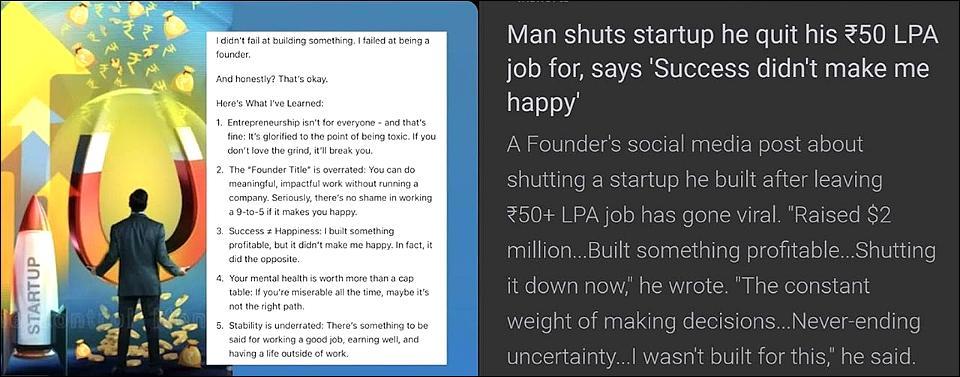



So we just keep altering the physical form of our solutions while repeating the same psychological tendencies falsely hoping that we will get relief one day.
There is a difference between doing meaningful things or having good relations and having things or people to fill the void of emptiness. Things on the outside are not powerful enough to fill that void (Video 79a). People are already there where we wish to be. Why aren’t they fulfilled …? We all are full of insecurities (it is not necessarily reflected on our faces).
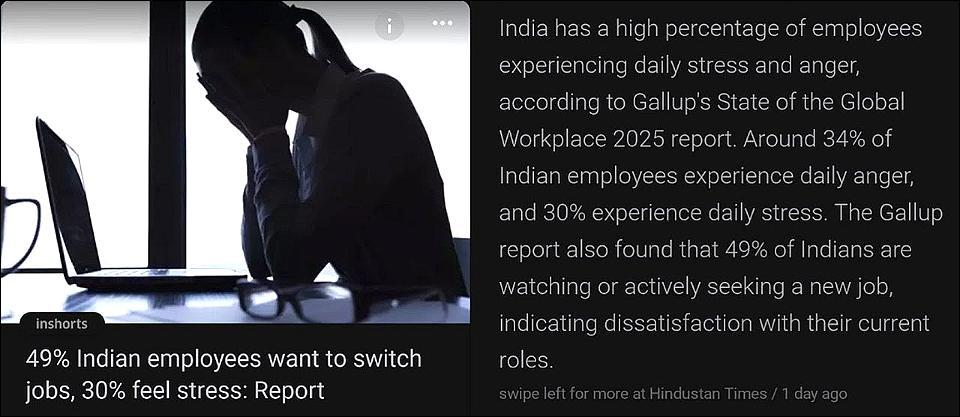
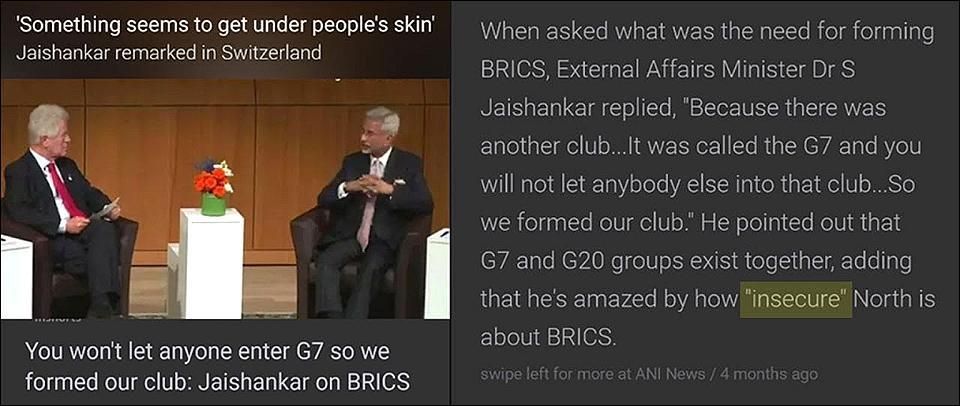

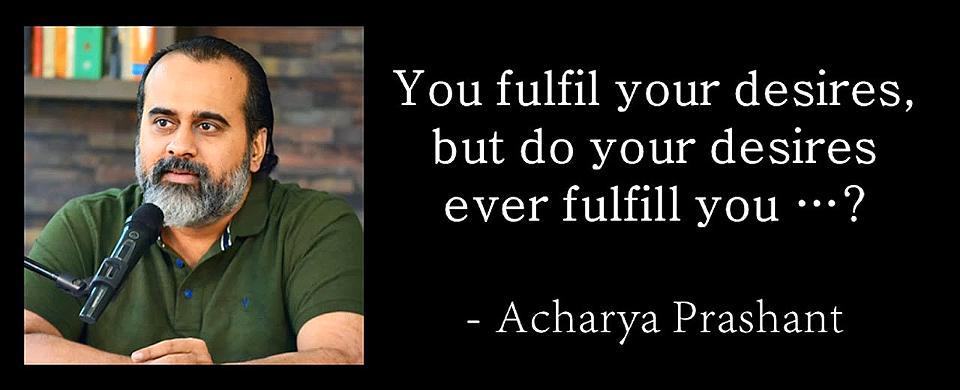
OR are your desires really yours …?
Maybe most of our desires don’t fulfill us because they were never truly ours.
( That doesn’t mean one shouldn’t make money, but it won’t give us what we are really looking for. )
We need to stop and think ‘if we don’t know what is right, what makes us think that our next action will solve our problem (Video 226), (Video 35) …?’.
So, what shall one do …? (Video 266).
And when we want to help someone, how shall we do so …? Do we help them with their superficial desires & impulses or their root causes …?
Leave a Reply